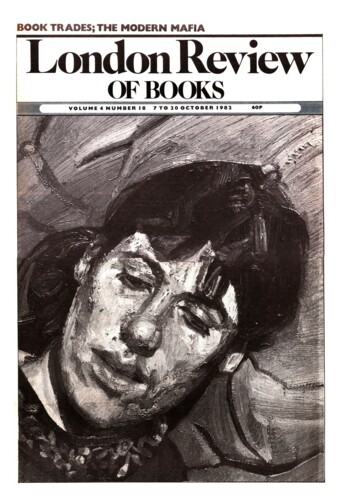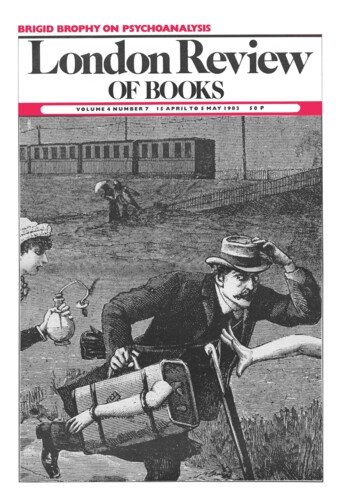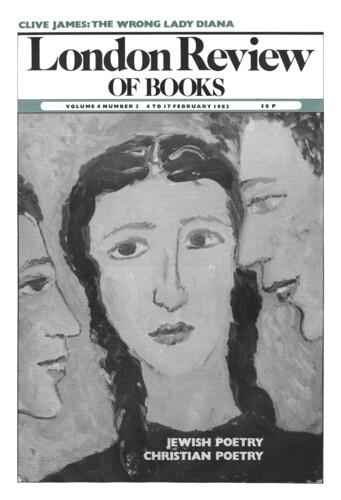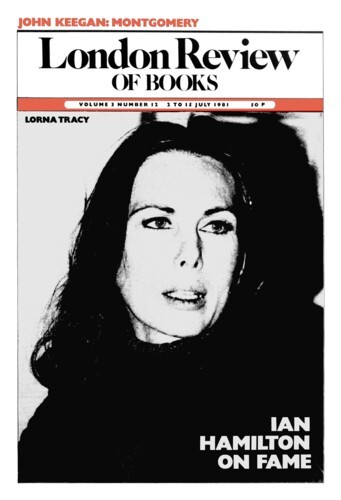Arts Councillors
Brigid Brophy, 7 October 1982
My fellow members of the Left often seem to have met an entirely different middle class from the one I was brought up in. Left-wing chat about education accepts without challenge the thesis that book learning comes easily to middle-class children because they come from homes conversant with books. Chat (which is rarer) about arts policy accepts that ‘standards’ and ‘quality’ are bourgeois conventions which the middle class has contrived to impose on public patronage of the arts, thereby getting itself, at the taxpayers’ expense, a bonanza of the kinds of art which it happens to enjoy. This gives me a surreal feeling that I must be the only member of the Labour Party who has hacked through the pampas grass in the front garden, penetrated the mock-half-timbered facade and set actual foot in any of the thousands of middle-class homes where no kinds of art are enjoyed, where the most bookish book to be accorded houseroom is the AA Members’ Handbook and where an invitation to partake in the bourgeois bonanza by passing a publicly subsidised evening at a Shakespeare play or a Bartok opera would elicit bafflement, fear or derision.





